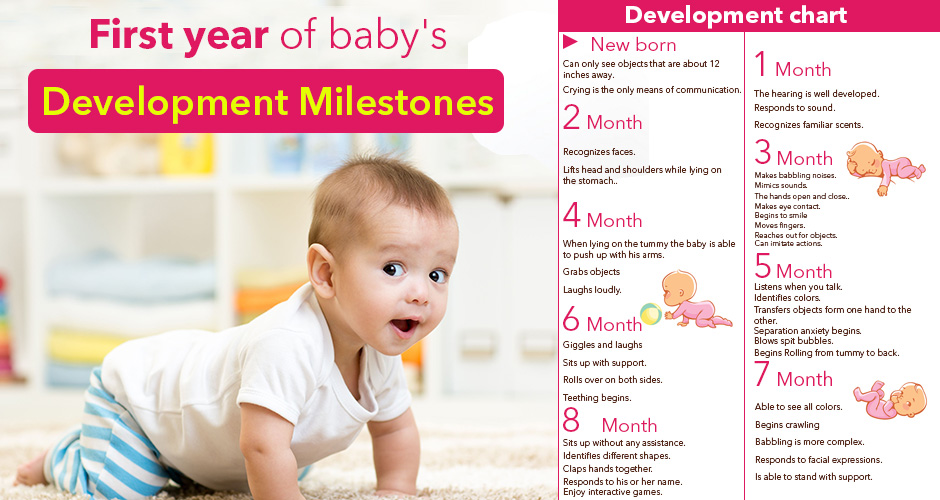 Source: bing.com
Source: bing.comCongratulations! Your baby has turned 1 year old and has started to reach exciting milestones. At this age, your child is more independent, curious and loves to explore new things. As a parent, it is essential to engage with your baby and support their development. To help you out, we have put together the Baby Development 1 Year Plus guide. Keep reading to know more.
Table of Contents
Physical Development
During the second year, your baby’s growth rate may slow down, but they will continue to develop new physical abilities. You may notice that they are starting to walk, climb stairs, jump, and run. Their hand-eye coordination and fine motor skills have improved, and they may be able to stack blocks, hold crayons or feed themselves with a spoon.
To support your baby’s physical development, give them plenty of opportunities to practice their new skills. Provide them with safe and age-appropriate toys, encourage them to crawl or walk, play games that involve reaching, grasping and throwing, and practice self-feeding with finger foods.
Language Development
Around this age, your baby may be able to say a few words, understand simple instructions, and respond to their name. They will continue to develop their language skills by listening to you and others, imitating sounds and words, and experimenting with different tones and pitches.
To promote your baby’s language development, talk to them as much as possible, read books, sing songs, and play games that involve sounds and words. You can also encourage their communication by responding to their gestures, facial expressions and sounds, and by asking them simple questions and giving them choices.
Social and Emotional Development
Your baby’s social and emotional development is crucial at this age as they start to develop a sense of self and their relationship with others. Your baby may show their emotions more clearly, such as joy, anger, frustration, or sadness. They may also be shy or clingy around strangers or in new situations.
To support your baby’s social and emotional development, provide them with a secure and loving environment, respond to their needs and emotions, praise their achievements, and help them manage their feelings by teaching them simple coping strategies such as deep breathing or counting. Also, encourage them to play with other children or attend playgroups to help them develop their social skills.
Cognitive Development
Your baby’s cognitive development is taking off at this age, and they are learning at a rapid pace. They may be able to recognize familiar people or objects, solve simple problems, and understand cause and effect. They are also curious about the world around them and may explore by touching, tasting, or smelling things.
To enhance your baby’s cognitive development, give them plenty of opportunities for exploration and discovery. Provide them with toys that challenge their problem-solving skills, such as shape sorters, puzzles, or stacking toys. Also, encourage their creativity by providing them with art supplies or toys that promote imaginative play.
Tips for Parents
As a parent, you play a crucial role in supporting your baby’s development. Here are some tips to help you out:
- Be patient and supportive as your baby learns new skills.
- Provide them with a safe and stimulating environment.
- Engage in play and exploration with your baby.
- Encourage their curiosity and creativity.
- Respond to their needs and emotions with love and care.
Frequently Asked Questions about Baby Development 1 Year Plus
Q: When should my baby start walking?
A: Most babies start walking around 12-15 months, but some may take longer or start earlier. It is essential to encourage your baby to practice walking by providing them with support and opportunities.
Q: How can I help my baby talk more?
A: Talking to your baby, reading books, playing games that involve sounds and words, and responding to their gestures and sounds can all help promote their language development.
Q: Is it normal for my baby to be clingy or shy?
A: Yes, it is normal for babies to show separation anxiety or shyness around strangers or new situations. It is essential to be patient and supportive and gradually introduce your baby to new people and situations.
Q: What toys are suitable for my baby’s cognitive development?
A: Toys that promote problem-solving, creativity, and imagination, such as puzzles, shape sorters, stacking toys, art supplies or toys that encourage pretend play, are suitable for your baby’s cognitive development.
Q: How can I support my baby’s emotional development?
A: Providing your baby with a secure and loving environment, responding to their needs and emotions, praising their achievements, and teaching them simple coping strategies can all help support your baby’s emotional development.
As your baby continues to grow and develop, remember to celebrate their achievements and support them with love and care. With the Baby Development 1 Year Plus guide, you have all the tips and knowledge you need to help your baby thrive.
